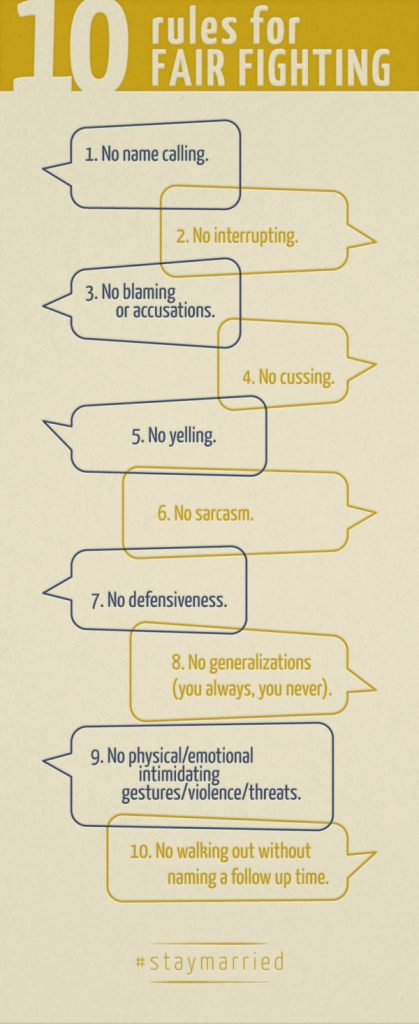
3 min read
All couples at one time or another will find themselves in arguments and at times “fighting”. Yes, even the healthiest couples do have conflict and verbal battles from time to time, the question is about whether or not their combative moments are in fact healthy or not. It’s important to note that couples that don’t have disagreements are most likely not being authentic and have an unbalanced relationship. There are solid ways to better support and “fair fight” with your partner, a concept developed and researched by Dr. John Gottman.
When couples engage in unfair fighting, they get hurt and injury occurs to the marriage relationship. When this happens, an argument ensues that is damaging … behaviors impulsively flow out like name calling, blame, contempt, silent treatment, yelling, profane criticism, threats and all the other complicated maladaptive behaviors in a marriage surface and injury begins to occur.
I’ve been married for over two decades as of this writing and counseled thousands of people during my time as a therapist. I’ve had so many great memories and moments with my wife yet keeping a relationship strong during the ebbs of flows of life, kids, jobs, etc is a bunch of work. If you have open, active, and engaged minds you will have debate and argument it’s just part of how marriages and relationships work yet you need not engage in unfair painful fighting.
Here are a few steps:
Better Start-Up
How and when your conversation starts will impact how the resulting dialogue unfolds. Too many couples believe that anytime is a good time to engage, it’s not, it’s just not. If it’s a testy subject or a pattern of conflict exists around an issue it’s imperative that you be mindful of your tone and how you ‘invite’ your partner into the discussion. I am not talking about walking on egg shells either, I’m simply saying that you must be more aware, more intentional, more mindful about how you start up discussions and maintain them once partners are talking. You an do this by: being appreciative, speaking from an I-position, refraining from blame or judgement, being open to their perceptions, taking responsibility, not complaining and instead state what you would like or need.
Learn to Slow it Down
You can slow things down. If couples slowed down their pace and volume the debate, argument, fight or escalated discussion would ease up. When you see a yellow light you slow down, least most people do, sometimes I gun it 🙂 When you see a red light while driving you stop abruptly, yet I work with couples day in and day out that when they see red lights in their relationship they don’t take note, in fact sometimes they push on their partners emotional gas pedal and it blows up. When you see your partner getting hurt, upset, or angry try slowing down and speaking in a manner that allows them to see and know you are there, that you are listening. Doing this can radically slow the process down and inculcate gentle repair in the moment so it can stay productive and helpful. You can do this by: speaking slower, saying to yourself, “he’s upset, I need to slow this down, what can I do that will communicate I am listening, that I care, that we will work through this?”, remembering to speak as if others you respect are watching you, being conscious of the present and not bringing up the past, and ensuring you are speaking intentionally.
Calm Yourself and Your Partner
It’s imperative that you work in an argument to calm yourself. The body engages in physiological changes and the mind tends to speed up during this process. So much is happening in our bodies that couples can be so caught up in what they think is “right” or who they think is “right” they become totally emotionally flooded and operate from the weakest parts of themselves. When you soothe and calm your own cognitive state you become better able to listen, speak, and understand. You can do this by: paying attention to your breath, relax your body position, reframing your body in a manner that would be less confrontational to your spouse, and expressing the need for a break with a set return-to-discussion-time.
You can engage in debate and argument and do it ‘fairly’ and in a way that does not damage the relationship. Take the narrative I have written above as well as the small tips below in the image and create the marriage you want!









